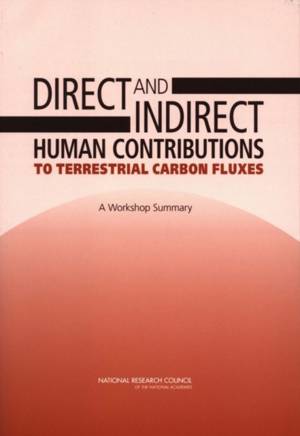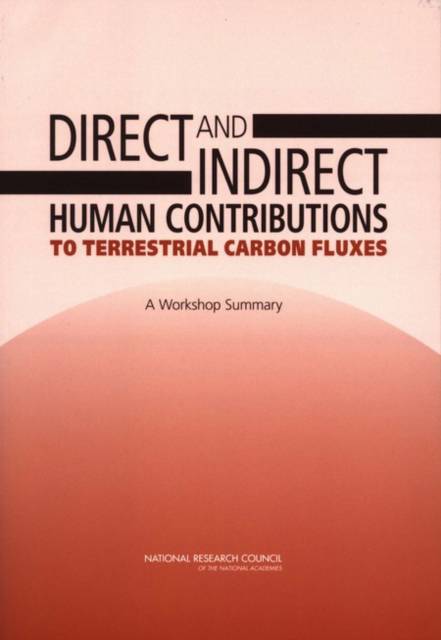
- Afhalen na 1 uur in een winkel met voorraad
- Gratis thuislevering in België vanaf € 30
- Ruim aanbod met 7 miljoen producten
- Afhalen na 1 uur in een winkel met voorraad
- Gratis thuislevering in België vanaf € 30
- Ruim aanbod met 7 miljoen producten
Zoeken
Direct and Indirect Human Contributions to Terrestrial Carbon Fluxes
A Workshop Summary
National Research Council, Division on Earth and Life Studies, Board on Agriculture and Natural Resources, Stephanie Johnson, Rob Coppock
Paperback | Engels
€ 42,95
+ 85 punten
Omschrijving
Human-induced climate change is an important environmental issue worldwide, as scientific studies increasingly demonstrate that human activities are changing the Earth's climate. Even if dramatic reductions in emissions were made today, some human-induced changes are likely to persist beyond the 21st century. The Kyoto Protocol calls for emissions reporting that separates out management-induced changes in greenhouse gases from those changes caused by indirect human effects (e.g., carbon dioxide fertilization, nitrogen deposition, or precipitation changes), natural effects, and past practices on forested agricultural lands.
This book summarizes a September 2003 workshop where leaders from academia, government and industry came together to discuss the current state of scientific understanding on quantifying direct human-induced change in terrestrial carbon stocks and related changes in greenhouse gas emissions and distinguishing these changes from those caused by indirect and natural effects.
This book summarizes a September 2003 workshop where leaders from academia, government and industry came together to discuss the current state of scientific understanding on quantifying direct human-induced change in terrestrial carbon stocks and related changes in greenhouse gas emissions and distinguishing these changes from those caused by indirect and natural effects.
Specificaties
Betrokkenen
- Auteur(s):
- Uitgeverij:
Inhoud
- Aantal bladzijden:
- 92
- Taal:
- Engels
Eigenschappen
- Productcode (EAN):
- 9780309092265
- Verschijningsdatum:
- 30/07/2004
- Uitvoering:
- Paperback
- Formaat:
- Trade paperback (VS)
- Afmetingen:
- 152 mm x 229 mm
- Gewicht:
- 301 g

Alleen bij Standaard Boekhandel
+ 85 punten op je klantenkaart van Standaard Boekhandel
Beoordelingen
We publiceren alleen reviews die voldoen aan de voorwaarden voor reviews. Bekijk onze voorwaarden voor reviews.







